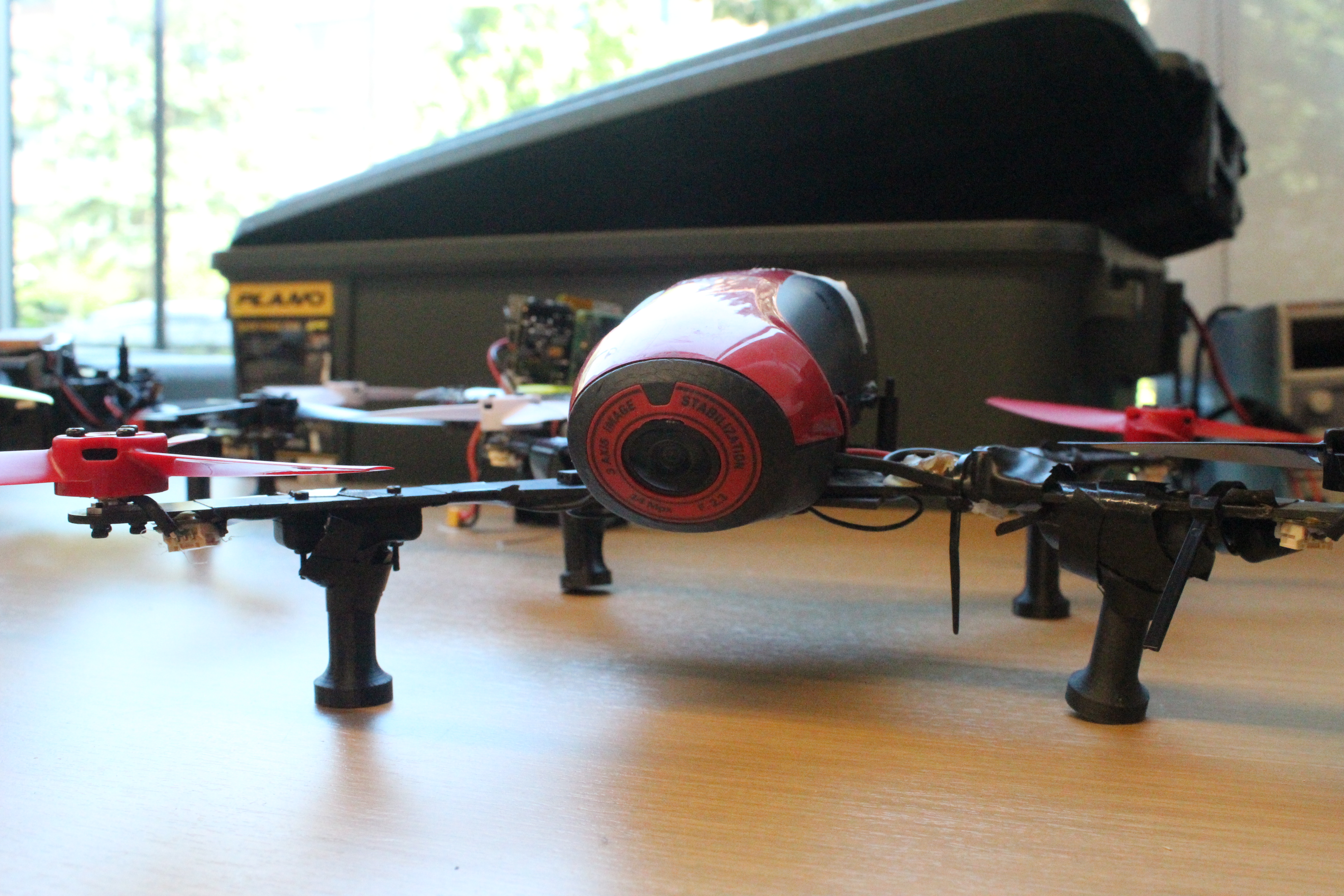Flying like Falcons: PeAR Lab's Drone Research
By Sam Rooney
This article was written for the September 5, 2023 edition of Tech News, WPI’s campus newspaper.
If you’ve ever seen falconry videos online, you know how agile birds can be. Watching them fly at top speed through gaps between trees and through obstacles until they reach their goal is something truly remarkable. Currently, there is a lab on campus dedicated to pushing the limits of autonomous control by attempting to fly a drone with the same speed and agility as these naturally engineered creatures (proving that birds are real, at least for now). This lab is called the Perception and Autonomous Robotics Group, or PeAR, run by Professor Nitin Sanket.

In just the same way that falconry birds avoid flying into tree trunks, PeAR’s goal is to keep a small, fast-flying drone from hitting obstacles. This is accomplished by using advanced machine learning algorithms that analyze camera data to identify high-risk areas for the drone’s flight. The drone is programmed to avoid risky places to fly, but still move towards its goal.
In the past, PeAR has applied this technology to honeybee-mimicking drones designed to approach flower heads for pollen gathering and transfer, while avoiding collision with other nearby plants. Presently, they’re making the drones fly as fast as possible – up to 30 meters per second – while maintaining agility and control.
If you’re an RBE undergrad interested in working in the agile autonomous flight field, and you’ve already taken a class with Professor Sanket, you’re invited to apply immediately to the lab as a research assistant. If you haven’t previously worked with the professor, don’t worry! PeAR will be hosting more undergraduate research assistants, especially through MQP programs, starting this spring. Research assistants will contribute to implementing new drone designs, machine learning and software frameworks, as well as helping with testing new technology in the lab.
If you’re a student looking to apply, or are simply interested in learning more about PeAR’s research, please visit pear.wpi.edu!